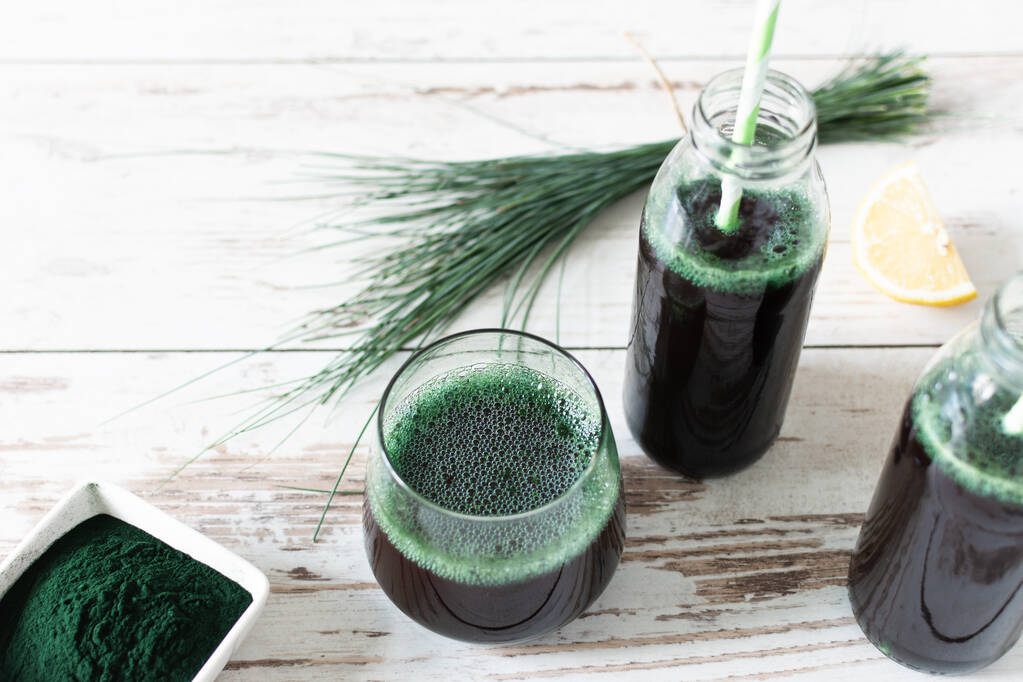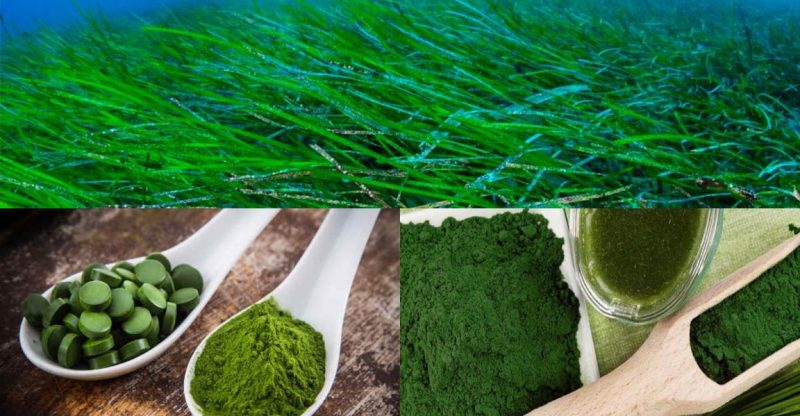Spirulina: A Superfood for Better Health Benefits
Spirulina, known as Coiled Algae in ancient times, is one of the earliest superfoods familiar to humans. Though it’s gaining widespread recognition only now, its origins aren’t recent – this ancient organism dates back approximately 350 million years. What makes spirulina truly remarkable is its exceptional concentration of proteins, vitamins, and minerals. It contains significantly higher protein content than any other food source in nature. Explore how spirulina can enhance your health and well-being with its remarkable nutritional properties and benefits, including various health benefits of spirulina.
Table of Contents
Protein Powerhouse
The protein in Spirulina is easily digestible and greatly supports growth and muscle strength. When compared to many other nutritious foods, Spirulina surpasses them in protein content, securing its place as a top-tier superfood.

Minerals: The Hidden Powerhouse in Spirulina
While protein plays a vital role in growth, trace minerals, even in small quantities, significantly contribute to development and overall health. These minerals, dissolved in water, are naturally absorbed by spirulina, making them bioavailable (easily absorbed by the body) and providing maximum benefits.
Let us examine the minerals found in spirulina, their significance, and their uses.
Potassium
The potassium found in spirulina plays a vital role in maintaining the body’s electrolyte balance. A potassium deficiency can lead to increased blood pressure and negatively impact the heart and kidneys.
Calcium
Calcium is essential for the strength and development of bones and teeth in the body. Spirulina contains calcium in amounts comparable to that found in milk.
Zinc
Zinc plays a critical role in over 30 enzymatic reactions in the body. It supports brain health, skin integrity, prostate function, and enhances the sense of taste. Spirulina contains significant amounts of zinc.
- Magnesium
Magnesium deficiency can lead to heart disorders. It aids in the absorption of vitamins B and C, as well as proteins. Spirulina is a notable source of this mineral.
Manganese
Manganese in spirulina works synergistically with zinc to optimize enzyme systems. It also helps regulate blood sugar levels.
Selenium
Once considered harmful, selenium in spirulina is now recognized as vital for health. The health benefits of selenium in spirulina are as follows:
- Prevents the appearance of aging.
- It acts as a potent antioxidant.
- Neutralizing carcinogens.
- Enhancing heart function. Spirulina provides this trace mineral.
Iron
Iron enhances the production of hemoglobin, which faithfully carries oxygen, the breath of life, to various parts of the body. For women, especially during their pregnancy phases, iron is a vital nutrient. This essential mineral, iron, is also present in spirulina.
Phosphorus
Phosphorus is the second most abundant mineral in the human body. It is present in every single cell. Working together with calcium, it strengthens bones. It also helps in the easy digestion of carbohydrates and B vitamins.
Vitamins – 10 Amazing Health Benefits of Spirulina
Spirulina contains nearly 10 types of vitamins, which are essential for all living beings.
- Pyridoxine (Vitamin B6):
Helps digest protein and assimilate nutrients into the body. It supports heart health, reduces edema, and regulates women’s hormonal balance. Spirulina contains a significant amount of this vitamin.
- Cobalamin (Vitamin B12):
Difficult to obtain from vegetables, but abundantly present in spirulina. Spirulina contains 250% more B12 than beef liver. This vitamin deficiency can cause anaemia, nerve damage, chronic fatigue, and cognitive decline. Regular consumption of spirulina prevents these deficiencies.
- Pantothenic Acid (Vitamin B5):
This vitamin reduces stress levels in humans. Deficiency of this vitamin leads to allergies, arthritis, ulcers, and hypoglycaemia. People under stress should include spirulina in their diet.
- Folic Acid (Vitamin B9):
Folic acid is essential for red blood cell (RBC) formation and preventing anemia. It corrects growth deficiencies, skin discoloration, and hair pigmentation issues. Spirulina’s folic acid helps overcome these deficiencies.
- Niacin (Vitamin B3):
Niacin (Vitamin B3) is one of the most abundant vitamins in the body and is extremely important for brain health. It also has the ability to reduce cholesterol. This vitamin is also present in spirulina.
- Inositol (Vitamin B8):
The Second Most Abundant Vitamin in Our Body. Inositol is an essential vitamin-like compound that plays a vital role in maintaining liver health. It helps detoxify carcinogens accumulated in the liver and regulates healthy cholesterol levels in blood cells. It works synergistically with choline to enable the liver’s production of lecithin. It is also found in spirulina.
- Riboflavin (Vitamin B2):
Riboflavin (Vitamin B2) is among the least abundant vitamins in our body. Its deficiency can lead to cataracts, blurred vision, and watery eyes. Spirulina supplementation ensures adequate intake.
- Thiamine (Vitamin B1):
Thiamine facilitates carbohydrate metabolism and helps maintain stable blood glucose levels. A thiamine deficiency can lead to weakness, cardiac damage, digestive dysfunction, and impaired oxygen delivery to tissues. In severe cases, the deficiency may prove fatal.”
- Tocopherol (Vitamin E):
Spirulina contains significant amounts of tocopherol (Vitamin E). This nutrient supports cardiovascular health, promotes optimal blood circulation, and ensures efficient oxygen delivery to all cells. Its presence helps delay cellular aging and maintains cellular vitality.”
- Pigments:
All organisms – both plant and animal species – contain specific pigments that perform specialized functions. These pigments provide protective benefits and other advantages to consumers. In this context, pigments hold particular significance. The blue-green microalgae Spirulina notably contain four major pigment compounds with unique protective and health benefits.

The Remarkable Properties of Chlorophyll
Chlorophyll provides numerous health benefits to the body. Its ability to stimulate peristaltic action in intestinal muscles prevents constipation. Additionally, it helps regulate digestive acid secretion, particularly inhibiting excessive pepsin production. Chlorophyll possesses natural drying properties, making it highly effective in wound healing. Notably, during World War II, spirulina (rich in chlorophyll) was extensively used to help soldiers’ wounds dry and heal faster.
The chlorophyll in spirulina plays a vital role in:
- Reducing inflammation
- Promoting new cell growth in injured areas
- Repairing and regenerating liver cells when damaged
- Dilating blood vessels, ensuring proper circulation, and optimal oxygen delivery throughout the body
Chlorophyll enhances heart function by:
- Stimulating nerve impulses that regulate heart contractions(systole and diastole)
- Improving pumping efficiency-even if heart rate decreases, each beat becomes stronger and more effective (similar to taking a deep, controlled breath)
Spirulina, as a chlorophyll-rich superfood, naturally provides these powerful health benefits.
Carotenoids are responsible for producing certain vitamins. Vitamin A is found in the liver of animals and can sometimes be toxic, but spirulina doesn’t have this risk, making it safer.
Phycocyanin
Although spirulina appears green in color, the reason for this is not just chlorophyll; it contains a higher percentage (7%) of phycocyanin. Phycocyanin is similar to bilirubin, a pigment found in humans. Bilirubin is essential for the proper functioning of the liver and the digestion of amino acids. From this, we can understand its importance.
Fat
Spirulina does not contain a high amount of fat; it contains only about 7%. Most of this fat consists of essential fatty acids in spirulina, including Linoleic acid, Linolenic acid, and Arachidonic acid, which help maintain balanced cholesterol levels. The body uses these fatty acids to produce prostaglandins, which are hormone-like compounds that help regulate blood pressure, capillary resilience (elasticity of blood vessels), and other vital hormonal functions.
Carbohydrate
Spirulina contains only a minimal amount of starch or sugars. Its carbohydrate content is just 10-15%, primarily in the form of polysaccharides like rhamnose and glycogen. Since these sugars are easily absorbed by human cells, the body does not require excessive insulin to regulate them, making spirulina a diabetes-friendly source of energy. Moreover, the carbohydrates in spirulina provide instant energy without causing blood sugar spikes.
Spirulina is an affordable superfood.
Though spirulina is an exceptional health food, its affordability makes it even more beneficial. Consuming just 3.9 calories worth of spirulina easily provides 1 gram of protein. In contrast, to obtain the same 1 gram of protein from beef, one would need to consume 65 calories worth of meat. When we compare various meat sources and their protein yields, it becomes clear that spirulina delivers abundant protein at a significantly lower cost.
For individuals with high blood pressure, spirulina serves as an ideal dietary choice. Those with hypertension should limit their daily salt intake to no more than 2,000 mg (2 grams). Spirulina’s natural composition makes it a perfect nutritional option for such health-conscious individuals.
How to Consume Spirulina?

As a Refreshing Drink
Instead of harmful bottled beverages, opt for a healthy spirulina drink. Here’s how to prepare it:
- Take 2 grams of spirulina powder in a large glass.
- Add a little sugar and lemon juice.
- Alternate fruits daily—try mango, apple, orange, grape, or pomegranate juice for variety.
- This makes spirulina enjoyable to drink daily.
- Mix with buttermilk or milk.
- Sprinkle over vegetable dishes or salads to enhance nutritional value.
- Adding spirulina to meals boosts their health benefits.
Tablets & Capsules
- Spirulina is also available in tablets (500 mg each)and capsules-ideal for travel or convenience.
- Dosage varies based on age, health, and needs.
Recommended Dosage
- General health maintenance: Follow standard dosage (usually 1-3 grams/day).
- Therapeutic use (under doctor’s advice):6-8 grams, up to 12-16 grams/day for severe conditions.

For our well-being and to lead a disease-free life, let us incorporate spirulina into our diet as needed.




